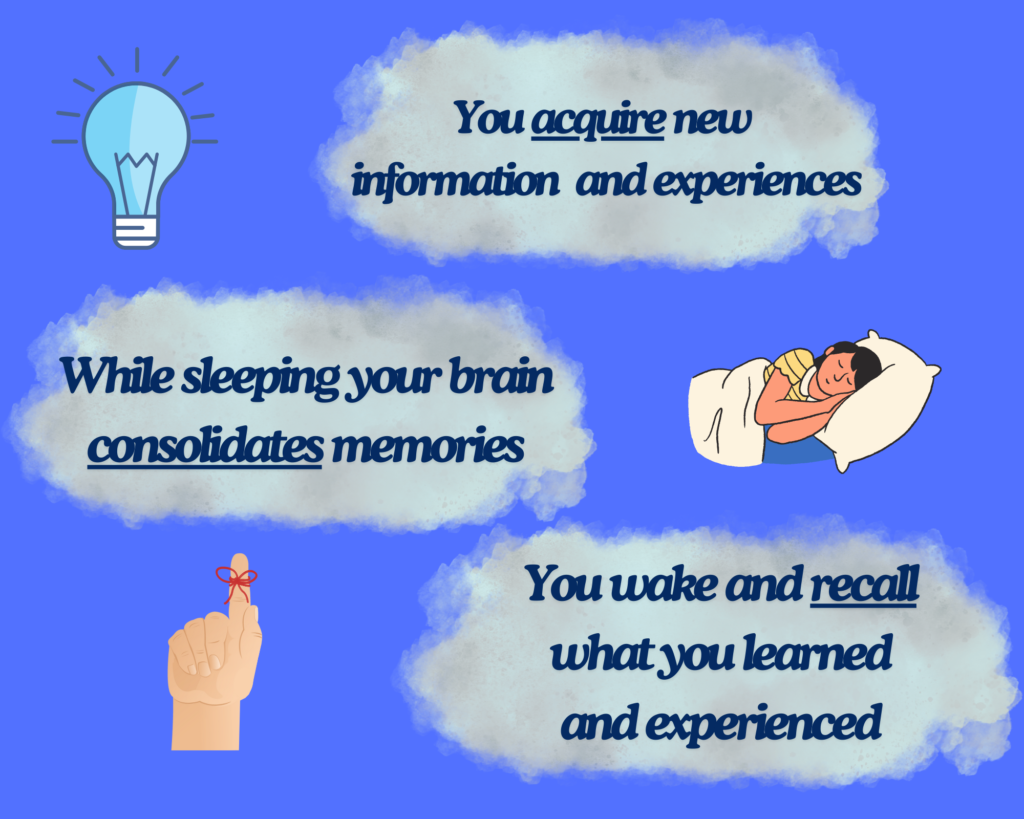Good Sleep Helps Avoid Cognitive Impairment
We all know that getting enough sleep is good for us for all kinds of reasons. But did you know that good sleep helps avoid cognitive impairment?
First, let’s acknowledge that a perfectly healthy person – even a young person – who pulls an all-nighter or is short on sleep for several nights will likely have some temporary concentration and memory challenges.
Please don’t panic! That’s life. A good night’s sleep or two will have you right back to normal.
But what we all want to fend off is a persistent shortage of quality sleep that can put us at risk for developing cognitive impairment.
What Exactly is Cognitive Impairment?
According to Alzheimers.gov, mild cognitive impairment (MCI) is the middle ground between normal age-related forgetfulness and Alzheimer’s or other dementia.
“People with MCI can usually take care of themselves and carry out their normal daily activities…Signs of MCI include losing things often, forgetting to go to important events or appointments, and having more trouble coming up with words than other people of the same age. It’s common for family and friends to notice these changes.”
Alzheimer’s and dementia are more serious forms of cognitive impairment and are severe enough to interfere with daily life. People with MCI may be more likely to develop these disorders.
Why Is Sleep So Important to Cognition?
Your ability to remember information is a big part of what makes you, well…you.
You remember who you are, what day it is, where you’re supposed to be and what you’re supposed to be doing. You recall people’s names and faces, and which goes with which. You know where you live and work, how to drive your car, how to cook your kids’ favorite meals. And so much more. Your memory and recall make it possible for you to live your life and function in this world.
It may be an oversimplification, but the three important pieces to our ability to store and remember information are acquisition, consolidation, and recall.
Researchers think sleep is a critical part of memory consolidation. They believe both sleeping between seven and eight hours per night, and having solid, unbroken sleep are important to memory, as well as health in general.
Bad Sleep is Bad for the Brain
Having a short bout of not-so-great sleep, while frustrating, isn’t the worst thing in the world. We’ve all experienced that. When you consistently fall short of getting enough or continuous sleep, over months and years, that’s when problems with cognitive impairment could arise.
Sleep Foundation describes the short-term impacts of poor sleep as daytime sleepiness, difficulty concentrating and slow reaction times, trouble dealing with unexpected situations, struggles distinguishing emotional context, and problems with decision-making and judgement.
They also describe more serious, long-term effects of inadequate sleep. These are the effects that can permanently alter your brain’s ability to function normally, leading to cognitive impairment.
“Insufficient sleep and sleep fragmentation are frequently associated with cognitive decline and dementia. Furthermore, in people already diagnosed with dementia, poor sleep has been linked to a worse disease prognosis.”
Increasing evidence points to a couple of factors affecting the brain’s long-term struggles to deal with poor sleep:
- Poor sleep means poor memory consolidation. If your brain regularly misses out on sleep, and as a result can’t process and store the information you’ve taken in that day, those memories and experiences may not stay with you over time.
- Missing sleep can also hamper your brain’s ability to clear out beta amyloid proteins that build into plaques. These plaques cause the deteriorating brain function of Alzheimer’s Disease.
“Studies have found that even one night of sleep deprivation can increase the amount of beta amyloid in the brain. One analysis found a considerably higher risk of Alzheimer’s disease in people with sleep problems, estimating as many as 15% of cases of Alzheimer’s disease were attributable to poor sleep.”
Those are pretty compelling reasons for making a good night’s sleep a high priority.
For help getting better sleep, check out these articles and blog posts:


